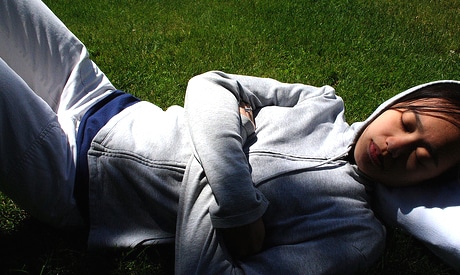
A clinical psychologist and sleep researcher at Feinberg School of Medicine at Northwestern University has shown that the influence of exercise over sleep isn’t nearly as straight forward as we once thought, but exercise does help you sleep better.
In the study, reported in The New York Times, a small group of women had received a diagnosis of insomnia. The volunteers were mostly in their 60’s and all were sedentary. Researchers randomly assigned volunteers to remain inactive or to begin moderate endurance exercise programs 3 to 4 30-minute sessions per week. The program took place over 16 weeks.
At the end of the program, participants in the exercise group slept for 45 minutes to an hour longer on most nights, waking up less often and reporting more vigor and less sleepiness. But only after 4 months did sleep begin to improve. Sleeping badly tended to shorten the next day’s workout.
This latest study worked with those with insomnia while previous studies looked at those with no prior sleep issues. The study showed that over time, workouts mute the stress response. Researchers do not yet know if workouts apply differently depending on the type of exercise–yoga, running, cycling, walking, etc. Read more about sleep deprivation
But people with insomnia and other sleep disturbances tend to be “neurologically different,” Dr. Kelly Glazer Baron, a clinical psychologist and sleep researcher at the Feinberg School of Medicine at Northwestern University, said to The New York Times. “They have what we characterize as a hyper-arousal of the stress system,” she said. A single bout of exercise on any given day “is probably not enough to overcome that arousal,” she explained. It could potentially even exacerbate it, since exercise is itself a physical stressor.
A Gradual Response to Exercise
Basically, the body’s response to working out is much more gradual than we initially thought.
We often think that exercise will make you more immediately tired, but this stress response only happens over time. Exercising right before bed can actually make it harder to fall asleep because it stimulates your heart, muscles, and brain, which keeps you up. It also raises your temperature right before bed, which can also keep you up.
Overtime, exercise slows the hyper-arousal present in many insomniacs so they can sleep better. Morning exercise coupled with exposure to light can improve sleep by calming the nervous system and improving overall mood. It also improves the overall sleep/wake cycle. Read more about muscle recovery
Photo Credit: bengarrison










